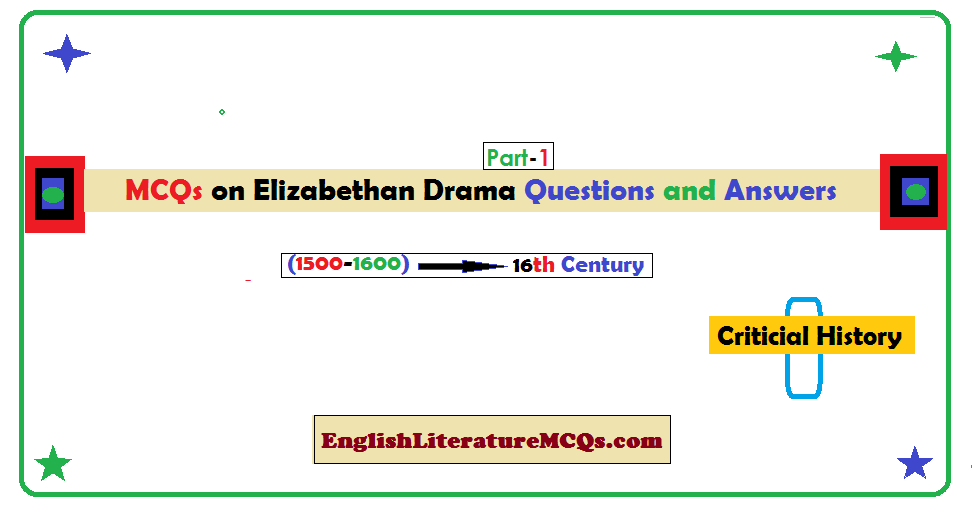Introduction To Jacobean and Caroline Drama (17th Century)
Table of Contents
After Shakespeare, the drama in England suffered a decline during the reigns of James-I and Charles-I Shakespeare and other Elizabethan dramatists took delight in action and the emotions associated with it. The Jacobean and Caroline dramatists gave expression to passive suffering and lack of mental and physical vigour. The real spirit of the Elizabethan drama disappeared, and only the outward show and trappings remained. All the MCQS on Jacobean and Caroline drama are published according to the new study syllabus for academic year 2021-22.
Read More: MCQs on Metaphysical Poetry
These MCQs on Jacobean and Caroline Drama (English Literature) Objective questions with answers includes critical history of English Literature from the Beginning to Post Modern & Post Colonial Literature in different posts of englishliteraturemcqs.com preferably for the preparation of NTS, FPSC, PPSC, PCS, CSS, B.A, B.A(Hons), M.A, M.Phil, Phd, Teachers & Lecturers Entry Tests and all other competitive examinations in Pakistan and also for foreign students and foreign study.
MCQs on Jacobean and Caroline Drama [Quiz]
✒ Jacobean and Caroline Drama Characteristics:
Q1. After whom, the drama in England suffered a decline during 17th century?
- Shakespeare
- John Milton
- Spenser
Q2. During the reign of which king/kings the drama in England suffered a decline?
- James-I
- Charles-I
- Both a and b
Q3. During which century, the real spirit of the Elizabethan drama disappeared?
- 16th century
- 17th century
- Both a and b
Q4. Dreadful deeds were described and to produce rhetorical effect on the audience were the chief characteristics of which dramatists?
- Elizabethan dramatists
- 15th century dramatists
- Jacobean and Caroline dramatists
Q5. The main characteristics of the hero in the Jacobean and Caroline drama was/were:
- resignation to fate expressed in the form of broken accents of pathos and woe
- lack of mental and physical vigour
- both a and b
Q6. Jacobean and Caroline drama died a natural death when ___________ closed the theatres in 1642.
- Puritans
- Realism
- Naturalism
✒ Ben Jonson as Jacobean Dramatist:
Q7. The greatest dramatists of the Jacobean period was:
- William Shakespeare
- John Milton
- Ben Jonson
Q8. Ben Jonson was a:
- classicist
- moralist and a reformer of drama
- Both a and b
Read More: Anglo-Norman Period MCQs with Answers
Q9. Who made an attempt to have the ‘unities’ of time, place and action in his plays?
- Shakespeare
- Ben Jonson
- John Gower
Q10. Jonson was mainly a writer of:
- poetry
- prose
- comedies
Q11. Volpone, The Silent Woman, The Alchemist and Bartholomew Fair are the comedies attained outstanding success written by_____________.
- Thomas Sackville
- Ben Jonson
- Thomas Norton
Q12. The comedies of Ben Jonson, which illustrate his theory of humour are:
- Every Man in His Humour
- Every Man Out of His Humour
- Both a and b
Q13. Ben Jonson wrote tragic play/plays on the classical model, but are not successful are:
- Sejanus
- Cataline
- Both a and b
Q14. Unlike Shakespeare, Ben Jonson was a/an:
- intellectual writer
- satirical writer
- Both a and b
Q15. Which of the following comedy of Ben Jonson was a satirical study of avarice on the heroic scale?
- Volpone
- The Silent Woman
- The Alchemist

